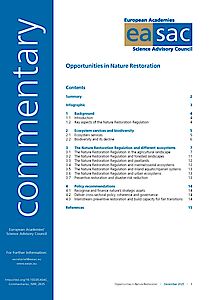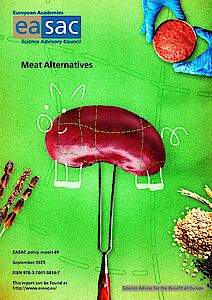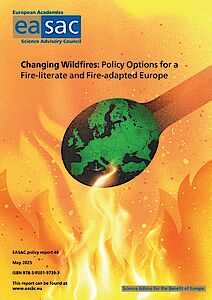Publications
How can science help to guide the European Union’s green recovery after COVID-19?
Following the enormous health and social costs imposed by the COVID-19 pandemic in Europe, increasing attention is turning to facilitating a green recovery, to promote economic activity while also tackling the global climate emergency. Policy development for a green recovery must be based on robust and transparent scientific evidence. In this Commentary EASAC, independent
of commercial or political vested interests, draws upon its previous work on assessing energy, environmental and health priorities to advise on some of the key issues for rebuilding economies to deliver benefits fairly for planetary and human health. Solutions are within reach. While our advice endorses some existing or planned European Union policies, we also urge fundamental green recovery transitions: in particular for a rapid reduction in generation and use of high-carbon energy; in giving greater recognition to the value of ecosystem services; and in taking account of health impacts in all sectoral policies, including those designed for the green recovery. The European Union should show global leadership by urging ambitious action by other countries and in international collaboration, in looking forward to COP26 of the United Nations Framework Convention on Climate Change and COP 15 of the Convention on Biological Diversity and tackling the Sustainable Development Goals. Moreover, the varying experience of countries
in dealing with coronavirus infections has demonstrated that the effectiveness of communicating scientific understanding and engaging with the public influences trust in, and impact of, policy measures. EASAC calls for strengthening of this capacity for science-based decision-making at national, regional and global levels to drive the green recovery worldwide.

































